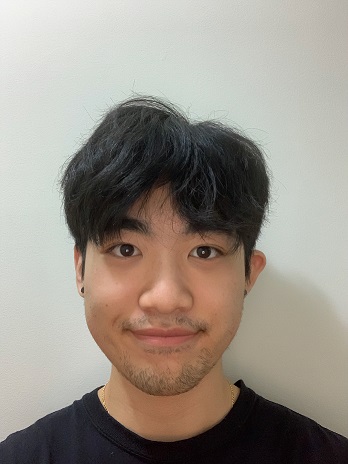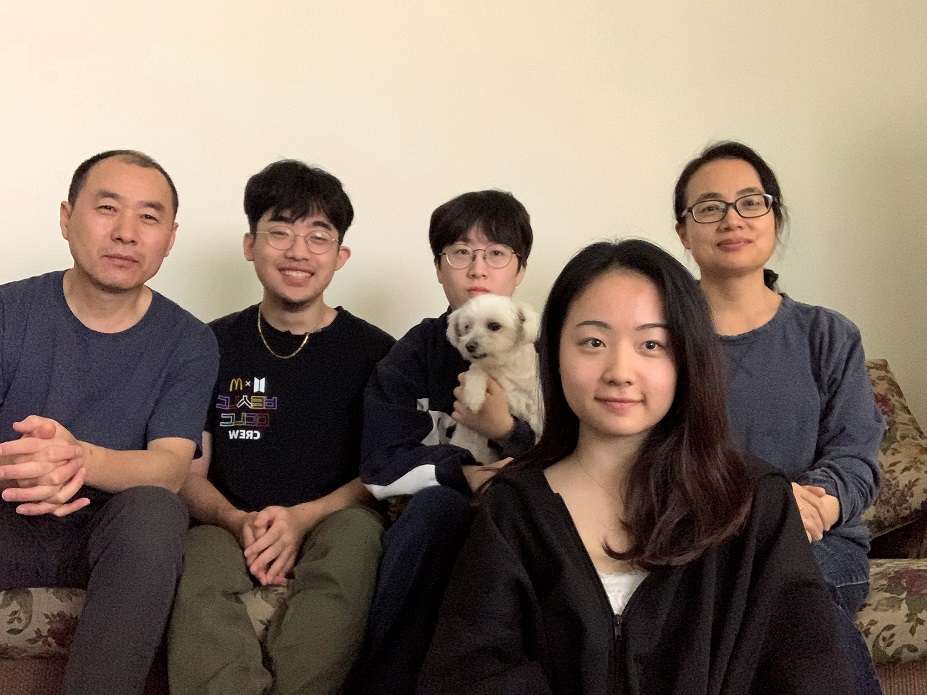Believing in My Potential to Succeed
By Jihun Choi
Fairview District, Toronto

Throughout my life, I drifted along. I showed no interest in school, was bored, and played video games to fill time. By Grade 11, this approach to life had taken a toll. At that point, my peers showed a keen interest in university and shared their dreams of becoming doctors or engineers. I honestly had no idea what I wanted to do. I was afraid of making the wrong career choice, and I knew how poorly I had performed at school. I made short-lived efforts to improve academically, but lacking the motivation to study, I was unable to see the way forward. There was only one certainty as I began Grade 12: I was not at all on the right track to be accepted into any university.
My parents have sincerely practised Nichiren Buddhism within Soka Gakkai International (SGI) for as long as I can remember. From time to time, I had chanted Nam-myoho-renge-kyo[i] to the Gohonzon[ii], but always in a half-hearted way. During this difficult period, my mother introduced me to two young men who practised in SGI Canada. I was inspired by their optimism and resilience. They encouraged me to map out my goals for the future, and to work toward them, one step at a time. With their help, I explored different vocations. I eventually realized that Mechanical Engineering inspired me because I love hands-on activities and building things; but in my mind, this career choice was out of reach. My marks were poor, and I was unable to keep commitments. Nonetheless, I had the support of my mother and my new SGI friends, and I decided to give this goal my absolute best effort.
Highly skeptical of my capacity to succeed, I enrolled in the daunting prerequisite courses for engineering in my last year of high school. Additional tutoring helped me develop a stronger work ethic, but I had not created a solid foundation in the earlier part of my high school education. Although I did not believe I would be accepted into university, I applied, simply going through the motions. I graduated, but as I expected, my marks were nowhere near the entrance requirements for university. The time had finally come when acceptance letters were sent out. I was surrounded by peers who celebrated, while I received rejections. I felt lost and I had no idea what to do. A Toronto area college accepted me into its easier Design program, and, with no other option, I decided to follow that route.
At that time, I was not practising Buddhism, but my mother had told me that she was chanting for my happiness. Miraculously, just before the start of the 2020 fall semester, York University admitted me. In disbelief, I had to read the acceptance letter several times. I was ecstatic but at the same time doubtful as to my capacity to survive university. Deep down, I felt that the safer route would be the college Design program. I asked for guidance from my SGI friends about this, and they each encouraged me to see my potential, as did my mother. I decided to challenge my life.
Initially, I felt excited; but not long after, I received an email from York University. Due to my high school marks, I had to complete a year of “Earth and Atmospheric Science” with a GPA of 5.0 or higher to advance to the Mechanical Engineering program. Undaunted, I started the 2020 semester.

Jihun with his family. From left: Seongun (father), Jihun, Jisu (sister) holding family pet Louie, Jimin (sister), and Malim (mother)
The COVID-19 pandemic restrictions were now in place. It did not take long for me to feel isolated as a university student because I was not able to develop solid relationships with peers, and I could not receive proper advice from the administrative staff. I felt so alone. Still, I strived to do my best. The online experience of staring at a computer screen was exhausting and my old patterns of boredom and distraction took over. By November 2020, I was sliding downhill.
I knew I had created this situation, but I did not know how to get out of it. Desperate, I called one of my SGI friends and asked what to do. He had gone through a rigorous university program and recommended establishing a steady routine to fully commit to my studies. He also urged me to chant for an hour as soon as I was off the phone. As soon as the call ended, I chanted for an hour. When I told him this, he suggested that I make chanting Nam-myoho-renge-kyo and doing gongyo[iii] a regular part of my day. From that moment on, I set up a schedule for school and chanted most days. I also read President Ikeda’s guidance, which was relatable, inspiring and revitalizing. The more I read, the more I wanted to tap into the same wisdom that he shared.
I began to see tangible results. I completed multiple mid-terms and realized that I was as capable as any other engineering student. Due to my inability to carry through earlier in the semester, I had failed a key Physics course. I refused to be defeated by this, and I decided to retake the course in the winter term, though my workload was already high. I chanted more consistently and managed my time so I could perform well in all my courses. At the end of my first year of university, I reached my objective of having a GPA over 5.0! I have now set a firm goal to formally transfer into the York University School of Engineering.
Slowly and steadily, I am making the impossible possible in my life. I have learned so much about myself in the process. This practice and being surrounded by good friends in Buddhism have helped me challenge my fundamental tendency to sabotage myself. Through courageously going after what I want in my life, I have gained deeper self-respect. I have learned to persist and take constructive steps forward, even when the going gets tough. I have a greater capacity to face reality head-on, and I use daimoku[iv] as my starting point for overcoming obstacles. With regular chanting, I have been able to naturally take responsibility for my life. Even more importantly, when I chant regularly, I notice that I am a kinder person. I have always been grateful for my parents because they have had complete confidence in me, with all my shortcomings. But I also appreciate that this practice has allowed me to have a better connection with my mother.
It is now my determination to ensure that I am unconditionally happy with whatever situation I am in, and that I will not be defeated by life’s difficulties. With this amazing practice, I will always move forward. As Daisaku Ikeda says:
Youth means grappling with all kinds of problems. It means resolving them, despite all difficulties, pushing aside the dark clouds of despair and advancing toward the sun, toward hope. This strength is the hallmark of youth. Having problems, making mistakes, or feeling regrets is only natural. What’s important is to be undefeated by them. In the midst of worries and struggles, always look forward and advance.…The important thing is to keep pressing forward. While struggling with various problems, it is vital that you chant Nam-myoho-renge-kyo and advance somehow—even if it’s only one or two inches. If you do so, when you look back, you’ll see that you have actually made your way through the jungle in no time. [v]
Published in January 2022 New Century
[i] Nam-myoho-renge-kyo: The fundamental Law of the universe expounded in Nichiren Buddhism. It expresses the true aspect of life. Chanting Nam-myoho-renge-kyo allows people to tap into their enlightened nature and is the primary practice of SGI members. The deepest meaning of Nam-myoho-renge-kyo is revealed only through its practice. Literally however, it means: Nam (devotion), the action of practising Buddhism; myoho (Mystic Law), the essential Law of the universe and its phenomenal manifestations; renge (lotus), the simultaneity of cause and effect; kyo (Buddha’s teaching), all phenomena.
[ii] The Gohonzon: The object of devotion in Nichiren Buddhism. It is the embodiment of the Law of Nam-myoho-renge-kyo, expressing the life-state of Buddhahood, which all people inherently possess. Go means “worthy of honour” and honzon means “object of fundamental respect.”
[iii] Gongyo: In Nichiren's (1222-1282) teaching, gongyo means to chant the daimoku of Nam-myoho-renge-kyo and recite portions of the “Expedient Means” (second) chapter and the “Life Span” (sixteenth) chapter of the Lotus Sutra with faith in the object of devotion called the Gohonzon.
[iv] Daimoku: Chanting Nam-myoho-renge-kyo in NIchiren Daishonin’s teachings.
[v] Daisaku Ikeda, For the Leaders of the Future, Discussions on Youth, World Tribune Press, Santa Monica, California, 2010, p. 5.

